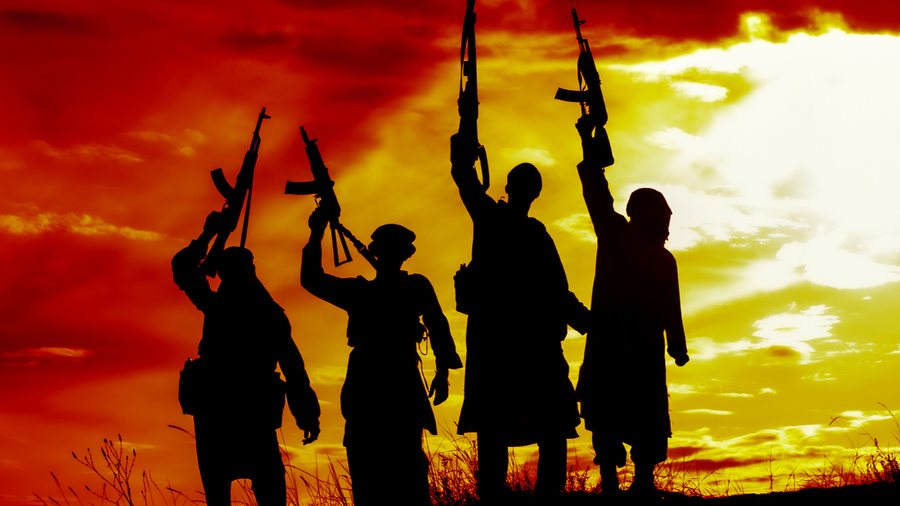
The “Muslim grievance” mantra is back. Israel’s war in Gaza, we are again being told, is going to prompt aggrieved Muslims the world over to resort to terrorism — the “weapon of the weak.”
Thus, during a U.S. Senate hearing on global security threats, the top American intelligence official, Avril Haines, “warned that the war in Gaza could embolden terrorist groups, which are aligned in their opposition to the United States for its support of Israel.”
Similarly, Reuters reports that:
European security officials are seeing a growing risk of attacks by Islamists radicalised by the Israel-Hamas war, with the biggest threat likely to come from ‘lone wolf’ assailants who are hard to track.
This view that the majority of Muslim terrorism is a product of Muslim rage at Israel and its supporters — the U.S. in particular — goes back decades and has been championed by a broad array of politicians, academics, journalists, and the media in general. According to this logic, because the Jewish state is stronger than the Palestinians and Muslim neighbors in general, the latter, who are often depicted as frustrated “underdogs,” tend to respond any which way they can — namely, terrorism — in an effort to achieve “justice,” or at least revenge.
Bullies of the World
Yet, as with all false narratives, the survival of this one relies on concealing the bigger, more complete picture, as captured by the following question: If Muslims get a free pass when their violence and terrorism is directed against those stronger than them, how does one rationalize away their violence and terrorism when it is directed against those weaker than them — for example, against millions of indigenous Christians living in the Muslim world?
Because the media cannot articulate Islamic attacks on Christians through the “grievance” paradigm that works so well in explaining the Arab-Israeli conflict, their main recourse is not to report on them at all.
According to reliable statistics published annually, nearly 40 of the 50 nations where Christians are most persecuted are Muslim. Eleven of the 13 absolute worst nations, where Christians experience “extreme persecution,” are also Muslim.
Is this, too, Israel’s fault? No, the rationalizations used to minimize Muslim violence against Israel simply cannot work here, for now Muslims are the strong majority — and they are the ones violent and oppressive to their minorities. In other words, Christian persecution is perhaps the most obvious example of a phenomenon the mainstream media wants to ignore out of existence: Islamic supremacism, which guarantees that the Arab-Israeli conflict will go on in perpetuity.
‘Peaceful Coexistence’?
Vastly outnumbered and politically marginalized Christians in the Islamic world simply wish to worship in peace, and yet they are still hounded and attacked; their churches are banned or burned; their women and children are kidnapped, raped, and enslaved. These Christians are often identical to their fellow Muslim citizens in race, ethnicity, national identity, culture, and language; there is generally no political or property dispute on which the violence can be blamed. The only problem is that they are Christian — they are non-Muslims, the same category Israelis fall under — and therefore they must be brought into subjugation, one way or another.
From here it also becomes clear why the genocide of Christians in Iraq, Syria, Nigeria, Somalia, and Pakistan at the hands of Muslims who could care less about Israel and Palestinians is one of the most dramatic but least known stories of our times. The media simply cannot portray Muslim persecution of Christians as a “land dispute” or a product of “grievance” (if anything, it is the ostracized and persecuted indigenous Christian minorities who should have grievances).
And because the media cannot articulate such Islamic attacks on Christians through the “grievance” paradigm that works so well in explaining the Arab-Israeli conflict, their main recourse is not to report on them at all.
Such is the way for all apologists of Islam: to ignore or whitewash Muslim aggression — and then, in that vacuum, distort and present non-Muslim actions as the origins of the conflict. This is especially prevalent in the portrayal of history. Thus Georgetown University’s John Esposito claims that:
[f]ive centuries of peaceful coexistence [between Islam and Europe] elapsed before political events and an imperial-papal power play led to [a] centuries-long series of so-called holy wars [the Crusades] that pitted Europe against Islam and left an enduring legacy of misunderstanding and distrust.
In reality, these “five centuries of peaceful coexistence” saw Muslims terrorize and conquer more than three-fourths of Christendom; but this inconvenient fact is seldom mentioned, for knowledge of it ruins the “Muslim-grievance” narrative, just as knowledge of modern-day Muslim persecution of Christians also ruins it.
Raymond Ibrahim, author of Defenders of the West and Sword and Scimitar, is the Distinguished Senior Shillman Fellow at the Gatestone Institute and the Judith Rosen Friedman Fellow at the Middle East Forum.

